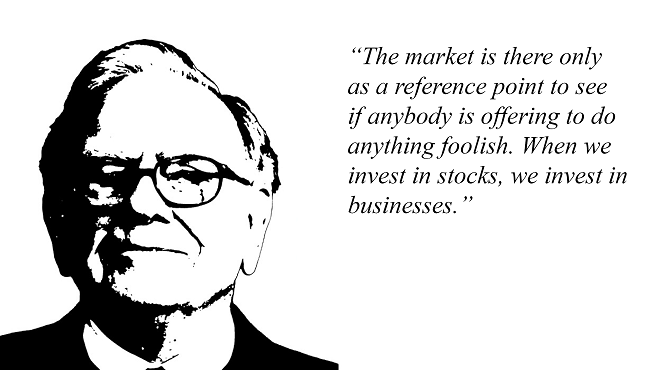
This article was first published in the National Post on February 13, 2021. It is being republished with permission.
by Tom Bradley
This week, my wife put a Warren Buffett book out on the counter. I don’t know if it was intentional or not (I’ve been ranting about the craziness in the market), but I picked it up and quickly got immersed.
Mr. Buffett is eminently readable and forever logical, and his words were a wonderful counterpoint to the times we’re in. I’m calling it the “silly season” because of the explosion of stock trading and speculation, the proliferation of blank cheque IPOs (SPACs), 20% daily moves on no news, a cannabis revival and an intense love affair with cryptocurrencies and short squeezes.
As I read the book, I highlighted some Warren-isms that seemed particularly timely.
There’s been a surge of discount brokerage account openings. Firms can’t keep up and worse yet, are having trouble servicing their existing clients. More recently, bitcoin dealers have joined the party. Mr. Buffett’s insight:
“Most people get interested in stocks when everyone else is. The time to get interested is when no one else is. You can’t buy what is popular and do well.”
For financial educators like me, this newfound interest in investing is overdue, but unfortunately, it’s mostly being fuelled by low (or no) cost trading and an insatiable appetite for risk. This combination has led to heavy trading in riskier stocks and increased use of leverage, options, and derivatives. Mr. Buffett’s words:
“The propensity to gamble is increased by a large prize versus a small entry fee, no matter how poor the true odds may be.”
“Derivatives are like sex. It’s not who we’re sleeping with, it’s who they’re sleeping with that’s the problem.”
“Wall Street makes its money on activity. You make your money on inactivity.”
Herd mentality is running strong right now (e.g. Reddit). Over many decades, Mr. Buffett has enhanced his reputation and wealth by zigging when others are zagging.
“I will tell you the secret to getting rich on Wall Street. You try to be greedy when others are fearful. And you try to be fearful when others are greedy.”
“The future is never clear; you pay a very high price in the stock market for a cheery consensus. Uncertainty actually is the friend of the buyer of long-term values.”
“We know that the less prudence with which others conduct their affairs, the greater the prudence with which we should conduct our own affairs.”
Part of what makes the current landscape concerning is the apparent disregard for profits and valuation. Price-to-earnings multiples aren’t part of the narrative. It’s growth at all cost.
“Price is what you pay. Value is what you get.”
“For some reason, people take their cues from price action rather than from values. What doesn’t work is when you start doing things that you don’t understand or because they worked last week for somebody else. The dumbest reason in the world to buy a stock is because it’s going up.”
The media is infatuated with commentators who feel compelled to predict the market. As with many investing principles, the importance of “time in the market,” as opposed to “timing the market” have been put aside. Investors want instant gratification. Indeed, I hear people asking what’s wrong with a stock when it’s gone sideways for two or three months. Sometimes two or three weeks.
“Forecasts may tell you a great deal about the forecaster; they tell you nothing about the future.”
“Buy a stock the way you would buy a house. Understand and like it such that you’d be content to own it in the absence of any market.”
“The market is there only as a reference point to see if anybody is offering to do anything foolish. When we invest in stocks, we invest in businesses.”
“The stock market is a device for transferring money from the impatient to the patient.”
It would be easy to slough off the principles that Warren Buffett espouses, especially in these times of zero commissions, social media and cryptocurrencies. Some will say he’s a dinosaur, but his understanding of investor behavior and how businesses work is timeless.
To use his words: “If principles can be become dated, they’re not principles.”
We're not a bank.
Which means we don't have to communicate like one (phew!). Sign up for our blog to get the straight goods on investing.

